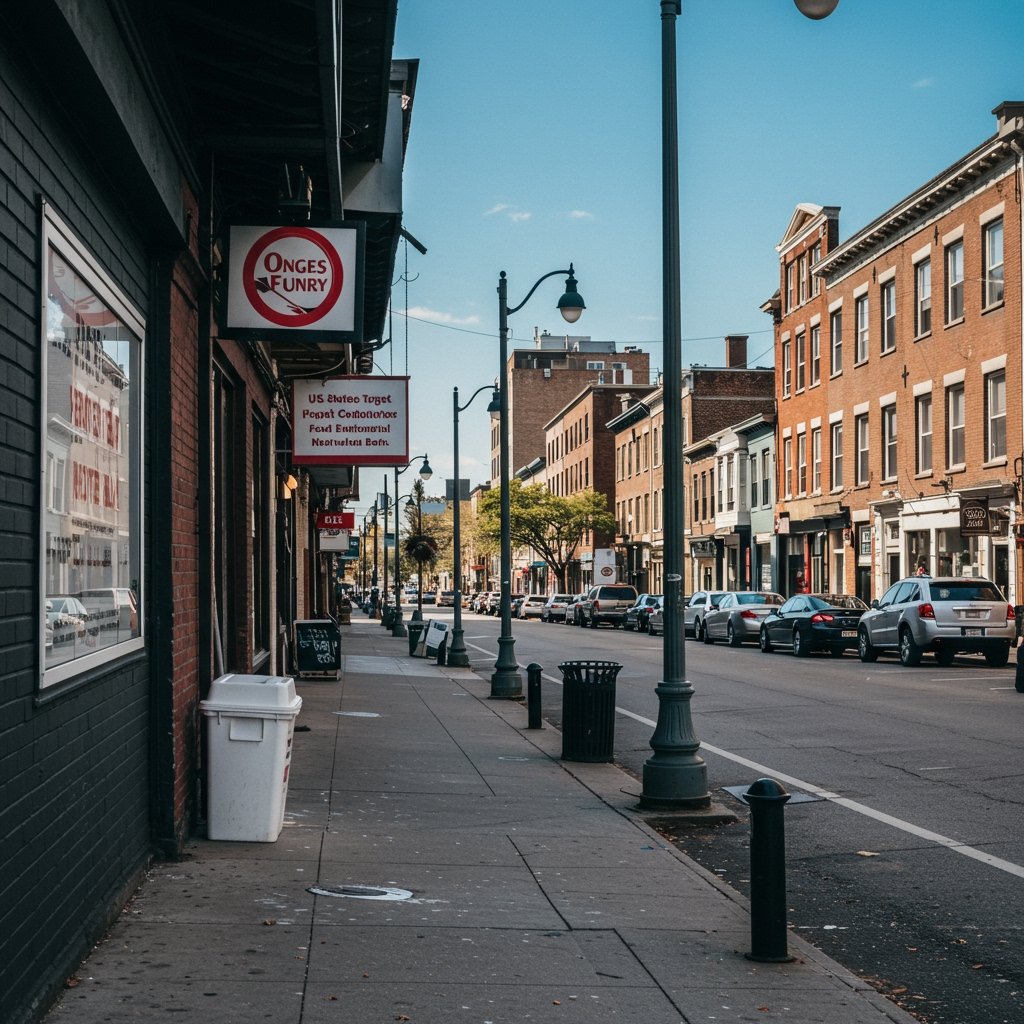Across the United States, a growing movement is gaining momentum as state legislatures and municipalities take steps to phase out or significantly restrict the use of expanded polystyrene foam food containers, commonly known by the trademarked name Styrofoam. Citing mounting evidence of environmental persistence and potential health risks, states on the West Coast like Oregon, Washington, and California have already implemented bans or reductions. Virginia has now joined this trend, enacting legislation to prohibit the distribution and use of these ubiquitous food packaging items.
Understanding Expanded Polystyrene and its Impact
Expanded polystyrene is a lightweight, low-cost plastic material widely used in the food service industry for cups, plates, and takeout containers due to its insulative properties and affordability. However, its very nature presents significant challenges upon disposal. Unlike many other plastics, expanded polystyrene is notoriously difficult and economically unfeasible to recycle within most standard municipal systems. As a result, vast quantities end up in landfills or, worse, enter the environment as litter.
In the environment, these foam products do not biodegrade but instead break down into smaller and smaller pieces, forming microplastics. These tiny plastic fragments persist for hundreds, if not thousands, of years, contaminating soil, water, and air. The accumulation of microplastics in waterways and oceans poses a severe threat to marine life, which can ingest the particles, leading to injury or starvation.
Health Implications Linked to Foam Containers
Beyond the visible environmental pollution, concerns have increasingly been raised about the potential health repercussions associated with expanded polystyrene. The material is made from styrene, a substance classified as a possible human carcinogen by the International Agency for Research on Cancer. While the risk of styrene leaching from food containers into food is considered low under normal conditions, it can potentially increase when exposed to heat or certain types of food, particularly those that are oily or acidic.
Studies have indicated that exposure to styrene, even at low levels over time, could be linked to an increased vulnerability to certain health issues. Researchers have explored potential connections between long-term, low-level exposure and adverse effects, including increased vulnerability to cancer and heart disease. The pervasiveness of these containers in daily life, from morning coffee cups to takeout dinners, means widespread public exposure, amplifying the focus on potential health risks.
The problem of microplastics also intertwines with health concerns. As foam breaks down into microplastics in the environment, these particles can enter the food chain. Research is ongoing to understand the full extent of human exposure to microplastics through diet and drinking water, and the potential health effects associated with ingesting these particles.
State-Level Actions Gain Momentum
The legislative action in Virginia reflects a broader national trend where states and cities are taking the lead on environmental regulations in the absence of comprehensive federal policy. Oregon, Washington, and California have been at the forefront of this movement, enacting bans or restrictions on single-use expanded polystyrene foodware over the past few years. These measures often involve phased approaches and encourage the adoption of alternative, more sustainable materials like paperboard, compostable plastics, or reusable containers.
Virginia’s path to a ban demonstrated notable support, with the original summary highlighting its passage as a demonstration of “strong bipartisan support”. This bipartisan backing suggests a recognition across the political spectrum of the environmental and potential public health imperatives driving the ban. The Virginia ban is set to be implemented in phases, beginning on July 1, 2025, when it will apply to large chain restaurants with 20 or more locations. The restrictions will then extend to all other food vendors, a category encompassing smaller establishments and food trucks, starting on July 1, 2026.
This phased approach is common in such legislation, designed to provide businesses, particularly smaller ones, with adequate time to transition to alternative packaging solutions, manage existing inventory, and adjust their operational costs.
Opposition and Differing Perspectives
While the movement to ban expanded polystyrene is gaining traction in many areas, it is not without opposition. Critics often raise concerns about the economic impact of such bans, arguing that alternative packaging materials can be significantly more expensive, posing a financial burden on businesses, particularly small, independent establishments. They also sometimes question the actual environmental benefits of some alternatives and the feasibility of widespread adoption of reusable systems.
The original summary notes that Montana Governor Greg Gianforte vetoed a similar bill in his state. Governor Gianforte described the proposed ban as “costly government overreach,” articulating a common argument against such regulations that prioritizes minimizing government intervention and potential economic costs to businesses and consumers.
This divergence in approaches between states like Virginia and Montana highlights the ongoing debate surrounding the balance between environmental protection, public health, and economic freedom. Proponents of bans emphasize the long-term societal costs of pollution and health risks, while opponents focus on immediate economic impacts and individual business autonomy.
Looking Ahead
As more states and cities consider or implement bans on expanded polystyrene, the market for alternative packaging materials is expected to grow significantly. This shift could spur innovation in sustainable packaging solutions, potentially leading to more cost-effective and environmentally friendly options in the future.
The actions in Virginia and other states underscore a growing public and political awareness of the issues surrounding single-use plastics and their environmental and health footprints. The debate over how best to manage these materials is likely to continue, but the trend toward restricting expanded polystyrene seems poised to expand further across the nation.



















